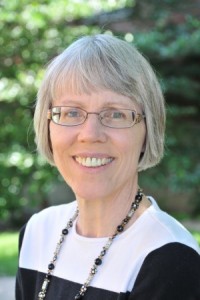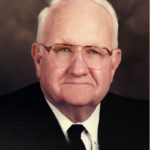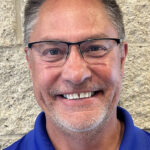By Barb Arland-Fye
Editor
Washington Post columnist Ruth Marcus says she would have chosen abortion rather than bring a baby with Down syndrome into the world. She never had to make that choice, having been blessed with two children who apparently are “normal.”

The rationale for her hypothetical decision saddens me because of its blatant selfishness. Dignity of the human person apparently applies only to those children who don’t alter their family’s lifestyle and will grow up to be self-supporting members of society.
Marcus was responding to pro-life — she uses the term antiabortion — supporters’ efforts to pass state laws prohibiting women from terminating their pregnancies after an unborn baby has been diagnosed with Down syndrome. “These laws are unconstitutional, unenforceable — and wrong,” she wrote.
Other women might make a different choice, Marcus acknowledges, but she justifies her support for abortion rights with a herd mentality approach. “More than two-thirds of American women choose abortion in such circumstances,” she says.
Expressing admiration for “families that knowingly welcome a baby with Down syndrome into their lives,” she proceeds to cite statistics about the burdens of such a decision. Individuals with Down syndrome, she notes, have “limited capacity for independent living and financial security; Down syndrome is life-altering for the entire family.”
Isn’t the addition of any child in a family “life-altering?” Each child comes with a different personality, talents, skills and challenges. What about “normal” children who become incapacitated because of illness (physical or mental), or an accident?
Yes, raising a child with a disability is challenging. My husband Steve and I struggled to understand our son Colin’s autistic behaviors, felt isolated because of his differentness and spent lots of time trying to problem solve at his schools. We still do! But, we have leaned on God and the companions God places on our journey to help us thrive as a family.
Each of us, including Colin and his younger brother Patrick, has developed a sense of compassion and to appreciate the dignity of every person. Through our experiences we realize that life is messy, family life is not perfect, forgiveness is essential and that love grows in the joy and the laughter, the sorrow and the pain, with God’s grace. Last month, during a retreat for adults with special needs, Colin made a prayer intention for my mom, who at the time was in the hospital being treated for influenza. Now recovered, she was deeply touched to learn of his heartfelt prayer, the prayer of a grandson living with a self-focusing disability.
Pope Francis calls us to reach out to others who don’t know God or have become indifferent to God, as is clearly the case in our world today. We do that best through our actions, showing that we are Christians by our love. In Matthew’s Gospel (25:40), Jesus tells us that “… whatever you did for one of these least brothers of mine, you did for me.” That’s love.
Our task, as God’s companions on this journey called life, is to change selfish hearts, our own and others, so that every person is welcomed into life regardless of perceived burdens, and accompanied along the way. That’s a choice that becomes a blessing.
(Editor Barb Arland-Fye can be reached at arland-fye@davenportdiocese.org.)











